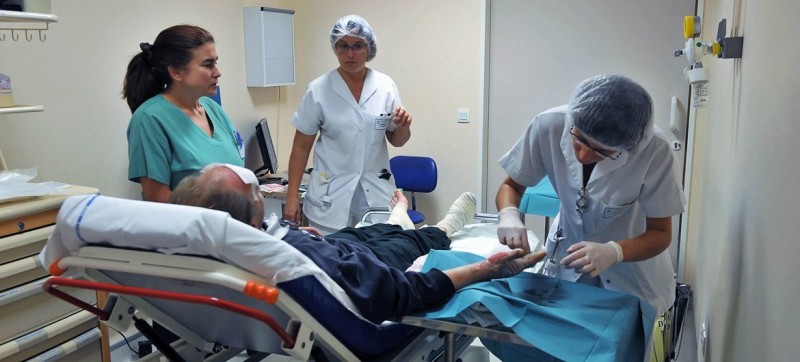Long working hours increase the risk of heart disease and stroke. From heart disease to cancer and diabetes, noncommunicable diseases (NCDs) now outnumber infectious diseases as the “top killers globally,” the UN health agency said in a new report, released on Wednesday, with one person under 70 dying every two seconds from an NCD. The report and new data portal, was launched on the sidelines of the 77th session of the General Assembly, at an event co-organized by the World Health Organization (WHO) together with Bloomberg Philanthropies. NCDs constitute one of the greatest health and development challenges of this century, according to WHO. Chief among them are cardiovascular diseases, such as heart disease and stroke; cancer; and diabetes and chronic respiratory diseases – as well as mental health illnesses. Together they account for nearly three-quarters of deaths in the world, taking 41 million lives every year. The report, Invisible numbers: The true extent of noncommunicable diseases and what to do about them, highlights NCDs statistics to illustrate the true scale of the threats and risk factors they pose. It also shows cost-effective and globally applicable interventions that can lower those numbers and save lives and money. Sharing the latest country-specific data, risk factors and policy implementation for 194 countries, the NCD data portal brings the numbers in the report to life. Moreover, it allows data exploration on cardiovascular diseases, cancer, diabetes and chronic respiratory diseases along with their main drivers and risk factors, which include tobacco, unhealthy diet, harmful use of alcohol and lack of physical activity. The portal spotlights patterns and trends throughout countries and allows comparison across nations and/or within geographical regions. To date, only a handful of countries are on track to meet the 2030 Sustainable Development Goal (SDG) target of reducing early deaths from NCDs by a third. And yet, NCDs are at the heart of sustainable development and their prevention and treatment is a prime opportunity for investment that would have myriad impacts on economic growth, far outweighing the money spent. “It is a misconception” that they are “diseases of high-income countries”, said Bente Mikkelsen, WHO’s Director of Noncommunicable Diseased, adding that a full 85 per cent of all premature deaths happen in low and middle-income countries. At a critical juncture for public health, WHO said that the new information offers a chance to address the issue and recommends spending more on prevention. Investing $18 billion a year across all low and middle-income countries could generate net economic benefits of $2.7 trillion by 2030.
Report assets
Country-specific portal
NCD facts
Important timing
Related Posts
WEJ PROJECTS
© 2009-2025, World Economic Journal. All Rights Reserved. Republishing permitted with attribution and active hyperlink to the original source.

